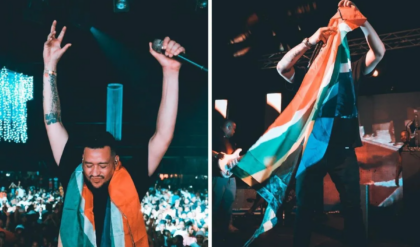“It boils my blood when people say it’s not about race because it is” – A’ja Wilson thinks Black WNBA players receive unfair treatment
WNBA MVP A’ja Wilson commented on the racial disparities in the WNBA and the treatment of Black athletes amid Caitlin Clark’s record-breaking season.
The WNBA found itself at the center of heated debates about race and recognition when South Carolina alumna and Las Vegas Aces star A’ja Wilson took a firm stand.
The conversation reignited during Caitlin Clark’s meteoric rise in her rookie season with the Indiana Fever. The 2023 WNBA Draft, in which the Iowa star was the first overall pick, became the most-watched draft in league history. It marked a pivotal moment for the sport while amplifying underlying racial and representation tensions.
A divided league
Last season, the WNBA saw an unprecedented surge in viewership, with 22 regular-season games averaging over a million viewers—a rarity for the league. However, this heightened visibility, primarily driven by Clark’s presence, revealed stark contrasts in how athletes of different races are spotlighted.
CC’s arrival in the WNBA was met with immense fanfare. Her exceptional play translated into unprecedented ratings, and she was heralded as the league’s “golden goose,” credited with validating the recent surge in interest. Yet, as a white athlete, her prominence also exposed troubling dynamics.
“It doesn’t matter what we all do as Black women; we’re still going to be swept underneath the rug,” said Wilson, a three-time MVP. “That’s why it boils my blood when people say it’s not about race—because it is.”
Clark’s rise highlights a pattern in the sports world that often packages success in narratives that unintentionally pit athletes against one another. While her rookie season featured awe-inspiring moments, it also became a flashpoint for broader conversations about the WNBA’s marketing strategies and the dynamics of its fan base. Meanwhile, the Aces star and other veteran Black players continue to advocate for equitable treatment on and off the court.
The bigger picture
Throughout the WNBA season, much of the spotlight revolved around the Indiana point guard. It was no surprise that, following the Fever’s elimination from the playoffs, the league experienced a dip in social media engagement, television ratings, and arena attendance.
Game 1 of the Fever’s playoff series drew an impressive 1.84 million viewers. That record was shattered in Game 2, which drew 2.54 million viewers, making it the most-watched WNBA game ever on cable television.
Yet, for A’ja, the issue goes beyond viewership statistics. It centers on how race influences opportunities, sponsorships, and narratives within the league. Wilson’s remarks reflect frustrations shared by many Black athletes across sports, who feel their contributions are often overshadowed or minimized despite their achievements.
The WNBA’s growing popularity is undoubtedly a win for the sport, but the path forward requires addressing these disparities. While Clark’s emergence has drawn attention to the league, the conversation sparked by Wilson highlights the ongoing need for a fair and inclusive approach to celebrating all players’ contributions.





